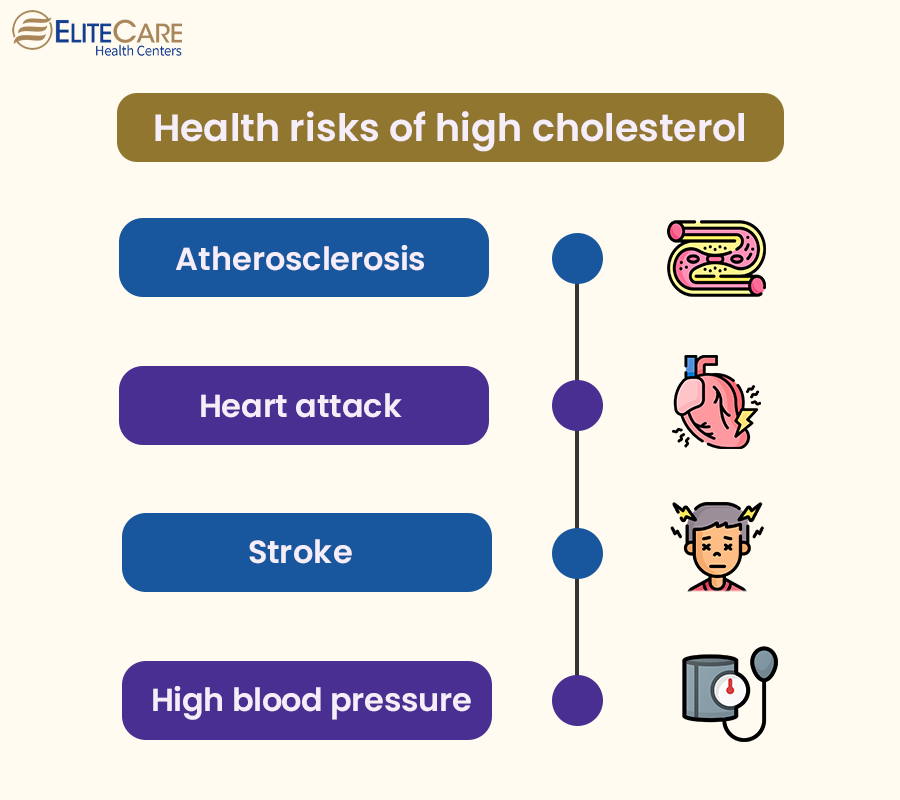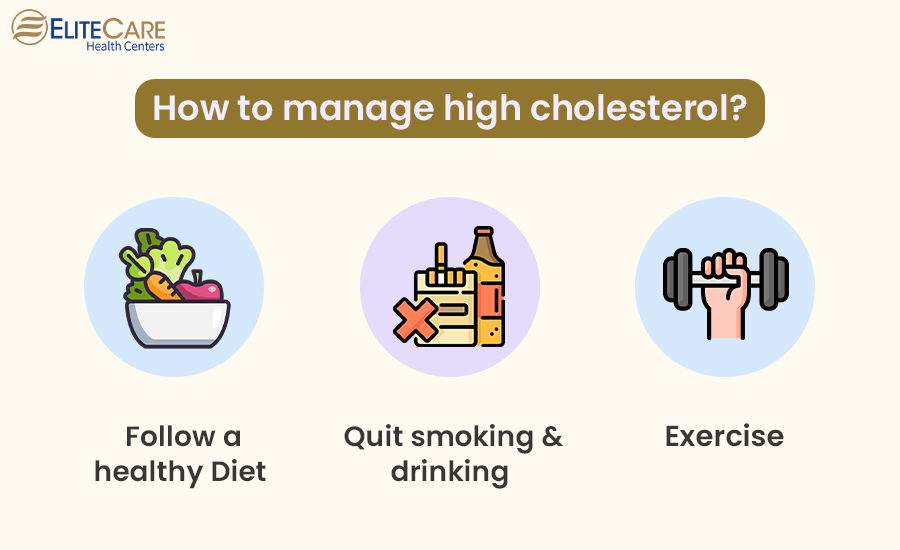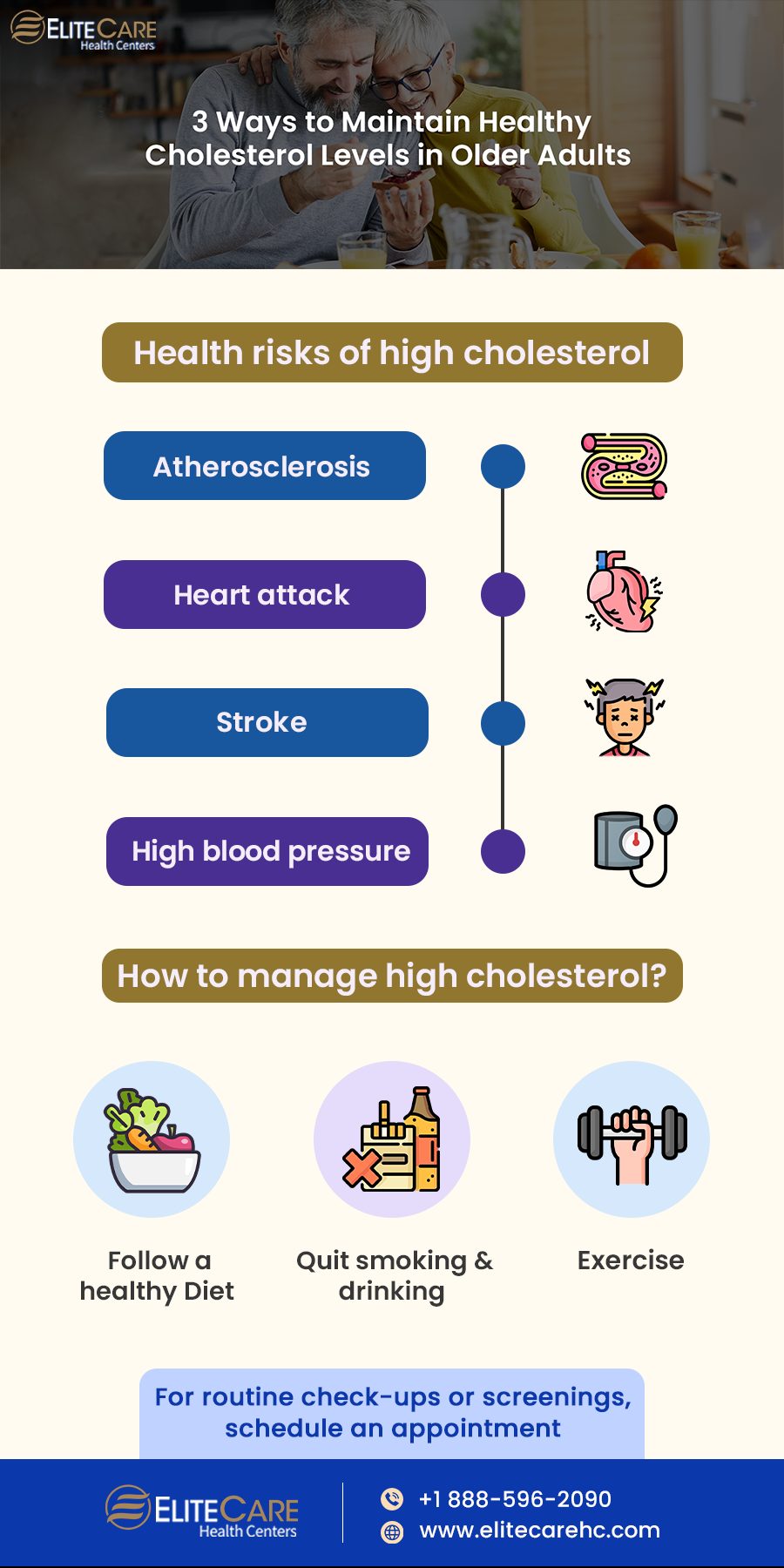
Cholesterol is a waxy substance that the body uses to build cell membranes and repair damaged tissues in the body. It also helps create vitamin D, hormones and bile. The liver produces enough cholesterol to meet all the needs of the body. Any excess cholesterol that is ingested through our diet is typically converted into bile salts by the liver and filtered out of the body.
When the body is unable to get rid of excess cholesterol it begins to circulate through the blood and forms plaque inside blood vessels that narrows the arterial walls. These plaques limit the blood flow to the heart and cause shortness of breath, chest pain and in some cases a heart attack.
In the United States, 94 million people above the age of 20 suffer from high cholesterol. Senior citizens are especially vulnerable as cholesterol levels tend to increase as they age.
Healthy Cholesterol Levels
Physicians evaluate the levels of four types of fats in the blood:
Total cholesterol refers to the sum total of the cholesterol content in the blood.
Low-density lipoprotein (LDL) refers to the cholesterol that can build plaques in the arterial walls.
High-density lipoprotein (HDL) refers to the cholesterol that regulates & manages LDL in the blood.
Triglycerides refers to the fat that is stored in cells when the body converts extra calories into fats.
A healthy cholesterol level is one where –
- Total Cholesterol is less than 170 mg/dL
- LDL cholesterol is less than 110 mg/dL
- HDL cholesterol is higher than 35 mg/dL
- Triglycerides is less than 150 mg/dL
High cholesterol can also develop in people that are lean and physically active. Hence, it is important to routinely get cholesterol levels checked after hitting 45 as high cholesterol does not present any signs or symptoms.
Why Is it Important to Control Cholesterol?

Excess cholesterol, fats and other substances circulating in the blood can lead to serious health consequences for senior citizens. High cholesterol can cause the following:
- Atherosclerosis
- Heart attack
- Stroke
- High blood pressure
Various lifestyle habits contribute to high cholesterol levels which in turn increases mortality in the elderly. A diet that’s high in saturated fats and processed foods paired with little to no physical activity can raise the risk of developing high cholesterol. Hence, senior citizens above the age of 60 should make a serious conscious effort to keep their cholesterol levels healthy.
Read More: Foods That Help Lower Blood Pressure
3 Ways to Maintain Healthy Cholesterol Levels as a Senior Citizen

Healthy Diet
Cooking food in monounsaturated fats like olive oil and peanut oil or polyunsaturated fats like vegetable oil is a great way of managing one’s fat intake per meal. It also helps limit consumption of dairy products, meat and eggs. If hungry between meals, eat nuts, seeds or fruits like avocado instead of reaching out for a box of chocolates or baked goods. Healthy eating habits help reduce cholesterol and provides the body with fibre, vitamins and minerals. Additionally, eating oily fish or taking Omega-3 supplements can help reduce the levels of triglycerides in the body.
Read More: Can Certain Food Improve Your Brain Health?
Quit Smoking & Drinking
Smoking enables LDL cholesterol to deposit in the arterial walls which in turn limits the blood supply to the heart. On the other hand, drinking alcohol can increase the levels of triglycerides in the body. High levels of LDL cholesterol and triglycerides can increase the risk of cardiovascular diseases, high blood pressure, obesity and diabetes. It is advisable for seniors above the age of 60 to quit smoking and drinking to avoid the many health risks they pose.
Exercise
Exercising for 30 minutes 3-5 days a week can have a remarkable effect on cholesterol levels. Less strenuous forms of exercise like walking or water aerobics also help in shedding excess weight which in turn causes the body to produce less cholesterol. Moreover, exercise increases HDL (good cholesterol) levels and creates enzymes that help move LDL (bad cholesterol) from the blood to the liver where it gets flushed out of the body.
Read More: Can seniors do strength training exercises?
Conclusion
High cholesterol is a silent killer, and it can affect people of all ages. Left unchecked, high cholesterol levels can lead to severe health complications and increased mortality. Therefore, senior citizens above the age of 60 should get routine blood tests for cholesterol readings.
Read More: What to expect from an annual physical exam
If your loved one is suffering from high cholesterol or related problems, visit EliteCare Health Centers, one of the best Florida Medical Clinics. EliteCare’s trained primary care physicians provide services like venipuncture, EKG and more to ensure good heart health. Visit this website to learn to schedule an appointment.
- Tags:annual physical examCenter For Wellnesscholesteral levelcholesterol levelhealth and wellness centerhealth and wellness servicesmedical clinicprimary care clinic near meprimary care physiciansenior care serviceswellness care centerswellness check doctorwhy is it important to control cholesterol






